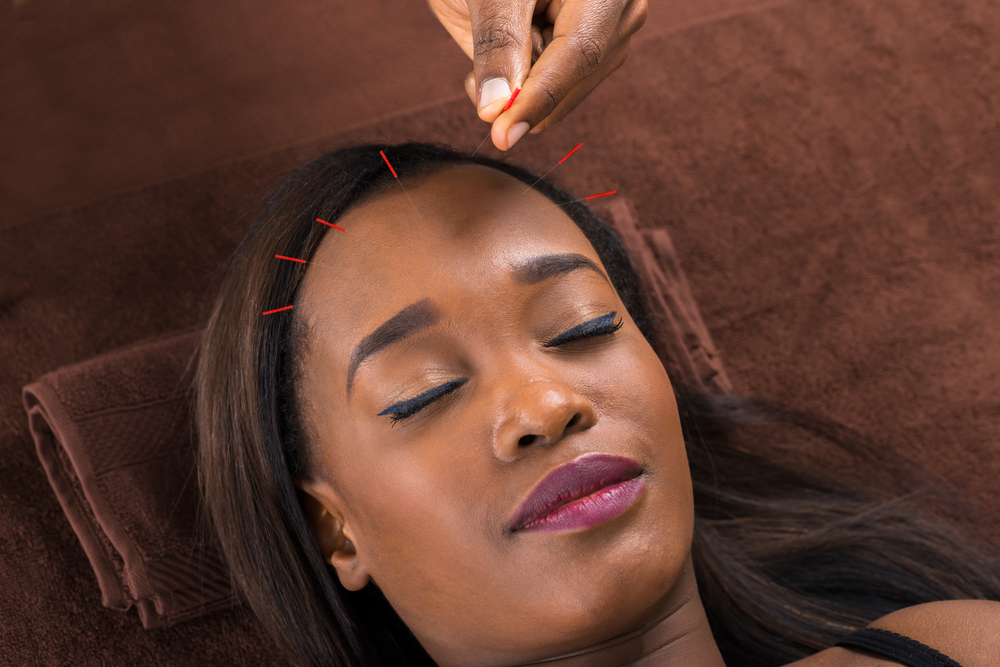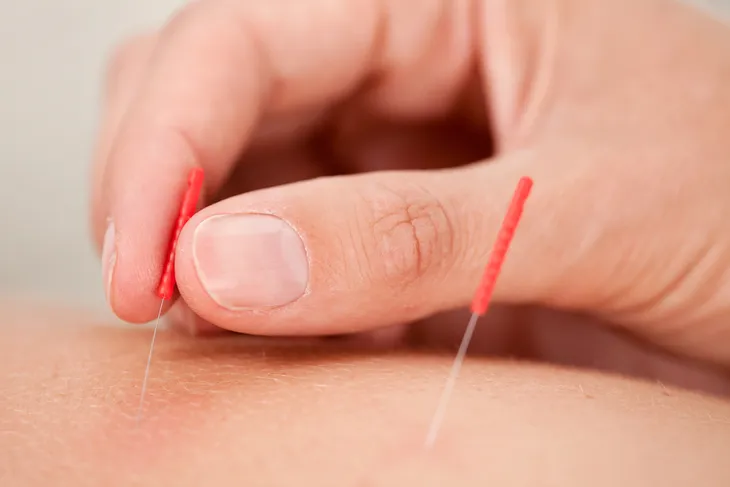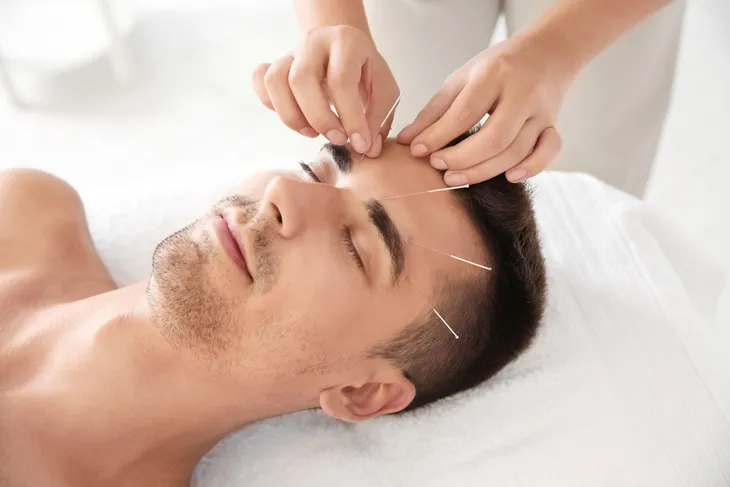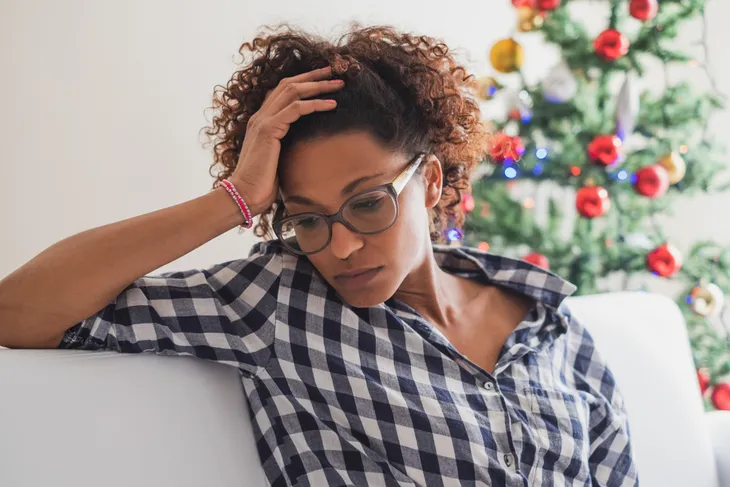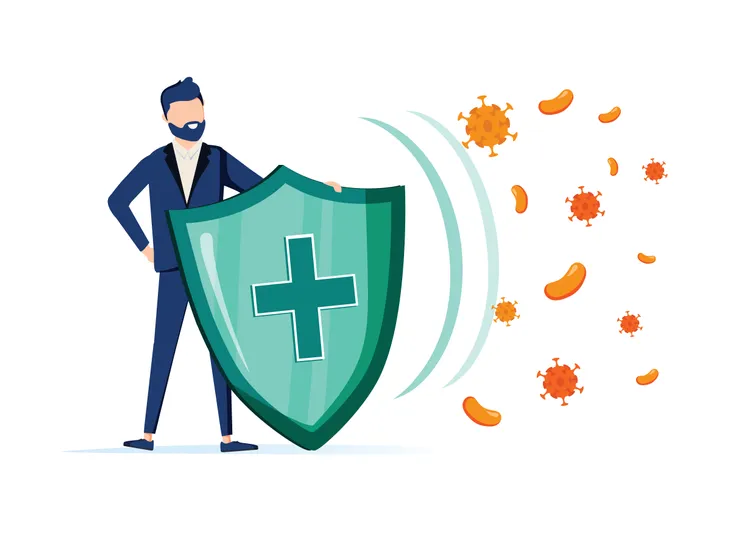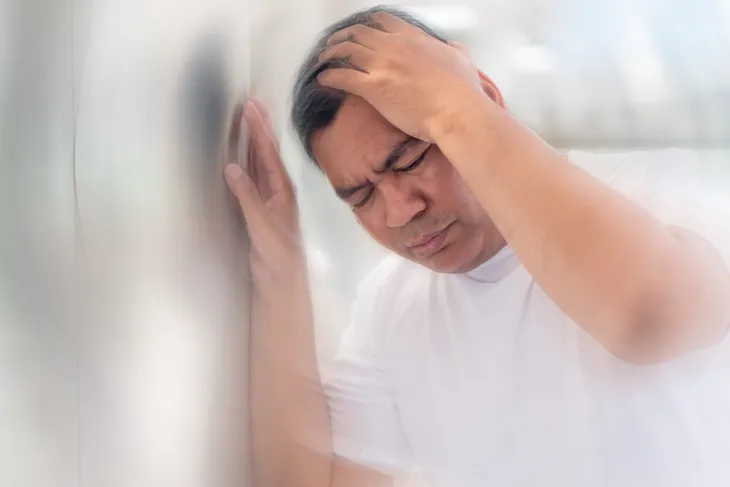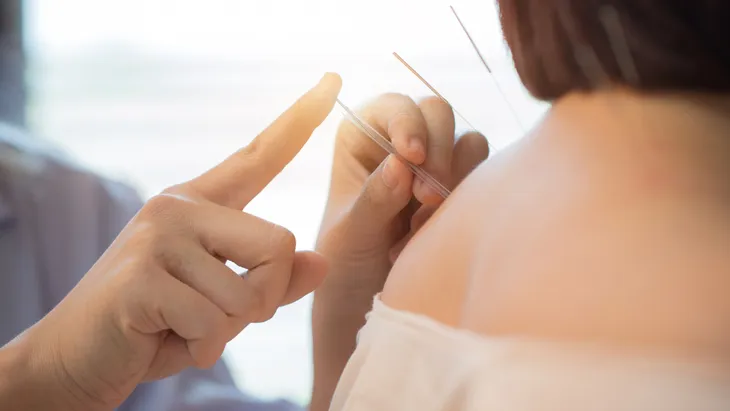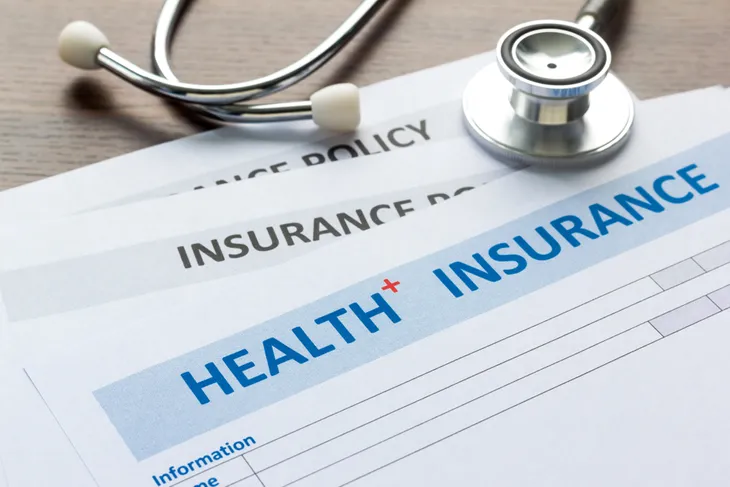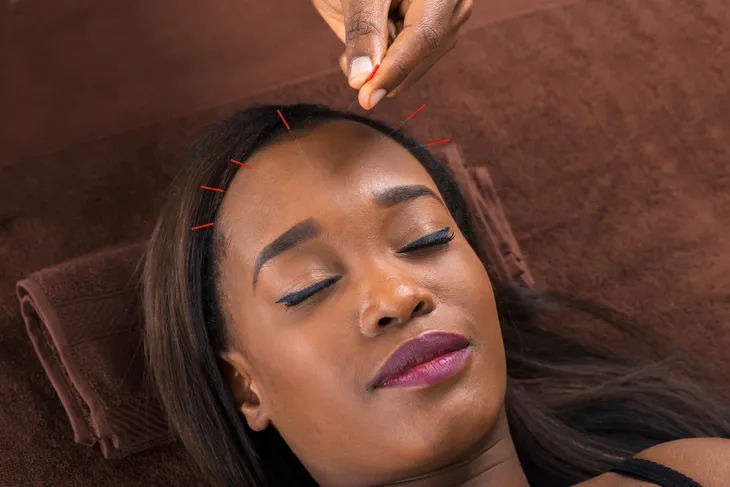If you’re not familiar with holistic treatments, acupuncture may seem strange. After all, the thought of tiny needles being inserted into your body can be terrifying. But the fact is, acupuncture has been used for centuries and is an ancient Chinese medical technique often used to relieve pain, improve health, and some believe it can even cure disease. While the effectiveness of acupuncture may remain controversial to some Western medical doctors and scientists, others swear by its benefits.
What Is Acupuncture?
Acupuncture is a holistic form of medicine that is used to help treat different ailments. The Mayo Clinic says, “traditional Chinese medicine explains acupuncture as a technique for balancing the flow of energy or life force — known as chi or qi (chee) — believed to flow through pathways (meridians) in your body.”
Acupuncture is a minimally invasive method that aims to “stimulate nerve-rich areas of the skin surface in order to influence tissues, glands, organs, and various functions of the body,” Paul Kempisty, a licensed acupuncturist, tells Healthline. During the treatment, tiny needles are inserted into several acupuncture points on the body.
How Does It Work?
So, how does it work exactly? Small, thin needles are inserted into acupuncture points. If you’re afraid of needles, you should know many people report feeling minimal pain when the needles are inserted. In fact, Johns Hopkins Medicine says some “people report acupuncture makes them feel energized. Others say they feel relaxed.”
Healthline explains the needle creates a small injury at the insertion site and while it’s small enough to not cause you discomfort, it is enough of a signal to let your body know it needs to respond. The source also explains the reaction “involves stimulation of the immune system, promoting circulation to the area, wound healing, and pain modulation.”
What Is Acupuncture Used For?
Acupuncture is used for a variety of health ailments, from anxiety to chronic headaches or body aches. It’s also often used to help arthritis, depression, insomnia, stress, and anxiety. Verywell Health says some individuals use acupuncture to help tinnitus, sinus congestion, sciatica, and even weight loss.
That’s not all. Some individuals use acupuncture to help promote fertility or to quit bad habits like smoking. As you can see, there are many different uses of acupuncture.
What Are the Benefits?
Acupuncture may offer many benefits, from controlling pain to relieving symptoms of morning sickness, allergies, and menstrual cramps. Another benefit of acupuncture is that there are very few side effects. It’s also safe as long as it is performed correctly.
Although it shouldn’t be used in place of treatment from a conventional doctor, it can be effectively combined with some other treatments. Another benefit of acupuncture is that “it may help patients for whom pain medications are not suitable,” says Medical News Today.
Some studies even propose that acupuncture may help with cancer treatment and multiple sclerosis. That said, more research is still needed to confirm these benefits. Let’s take a look at some of these benefits in more depth next.
Benefit: Reduce Stress
Everyone experiences stress from time to time but if you experience chronic stress, acupuncture might be able to help. In fact, Active Approach Health and Wellness Center says, “acupuncture is proven to reduce stress and even reverse the effects of stress.”
The source explains that research shows acupuncture stimulates the release of a hormone called oxytocin which helps regulate the parasympathetic nervous system. In turn, this can help you better manage situations that would normally stress you out.
Benefit: Improve Sleep
Many people underestimate the power of sleep, but the fact is, it’s essential for your overall health. Luckily, acupuncture may help improve your sleep.
While more research still needs to be done, Healthline says, “researchers found that acupuncture was more effective at improving insomnia symptoms, sleep efficiency, and total sleep time during treatment.” The source also notes individuals also reported their sleep awakenings and self-rated anxiety greatly improved 2 to 4-weeks after receiving treatment. If you suffer from insomnia talk to your doctor to find out if acupuncture is right for you.
Benefit: Boost the Immune System
Your immune system has an important job of protecting your body from illness and injury. So it’s no question that you should take care of it. It turns out, acupuncture may also boost your immune system.
The Lok Acupuncture Clinic explains that acupuncture may be effective in boosting your immune system because it “increases the amount of your body’s immune cells, such as the red blood cells, white blood cells, and T-cells.” The source also notes acupuncture may help those with immune-related illnesses by “encouraging these cells to reproduce and boost the body’s defenses.”
Benefit: Relieve Headaches
Most people have experienced at least one headache in their life but if you suffer from chronic migraines, or tension headaches it’s time you get some relief.
Acupuncture may help relieve migraines and tension headaches because the needle stimulates nerves in your body to release hormones that trigger responses in your body. Healthline explains, “this immune and circulation system stimulation is what proponents of acupuncture claim relieves migraines and tension headaches.”
It’s worth noting, chronic migraines and headaches can be a sign of an underlying problem so it’s important to get it checked by your doctor first. At your visit ask your doctor if acupuncture is suitable for you.
Potential Side Effects
Just like most treatments, there are some potential side effects. With acupuncture, the most common side effect is pain and bleeding caused by the insertion of the needles.
Other potential side effects include skin rashes, bruising, nausea, fainting, and dizziness. Although rare, allergic reactions and infections are also possible. To avoid serious side effects it is imperative that you find a reputable licensed acupuncturist who uses sterile and disposable needles.
Possible Risks
As with any treatment, there are always potential risks (along with the benefits), which is why it’s important to do your research. If you have a bleeding disorder or currently take blood thinners, acupuncture may not be suitable for you.
If the practitioner uses an unsterile needle, there is a risk of infection. Medical News Today also notes, “in rare cases, a needle may break and damage an internal organ.”
The good news is that acupuncture needles are regulated as medical devices by the United States Food and Drug Administration (FDA). This means their labeling and manufacture need to meet certain standards, including that the needles must be sterile, nontoxic, and labeled for single use by a licensed practitioner only.
Is Acupuncture Right for Me?
Hopkins Medicines notes, “because scientific studies have not fully explained how acupuncture works within the framework of Western medicine, acupuncture remains a source of controversy.” So how do you know if it’s right for you?
First, it’s important to take precautions and discuss whether acupuncture is right for you with your doctor. Acupuncture isn’t for everyone and it’s important to discuss your current treatments with your doctor and to find out if it’s suitable for you. If you’ve been given a medical diagnosis by your doctor you can ask them if acupuncture may help.
How to Find a Reputable Acupuncturist
If you’ve decided that you want to give acupuncture a try, it’s important that you find a reputable acupuncturist. You must find a licensed practitioner who uses sterile equipment and meets the FDA regulations. Healthline says a licensed acupuncturist should have LAc after their name.Along with looking for their credentials, you can also reach out to friends or family for recommendations.
How Much Does Acupuncture Cost?
To prevent surprises, it’s important to know how much acupuncture costs. While prices will vary based on where you live, Healthline says the average cost can be anywhere from $60 up to $130 per session.
Many health insurance providers provide coverage or partial coverage for acupuncture so be sure to check in with your provider to find out if you qualify. Anything helps!
What to Expect During Your First Session
You can expect your first session to last anywhere from 60 to 90-minutes. Most of that time may be spent discussing your symptoms with your acupuncturist because it’s important that they have a full understanding of your concerns to determine the best treatment for you.
The treatment portion of the session may last around 30-minutes but keep in mind you won’t necessarily have needles in your skin for that whole time. In terms of results, some individuals experience improvements right away while others may require a few treatments before noticing any changes. Overall, Healthline says many people feel happy and content after their first session.
